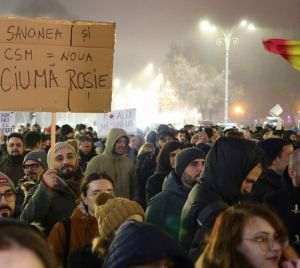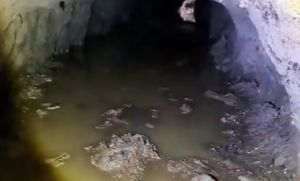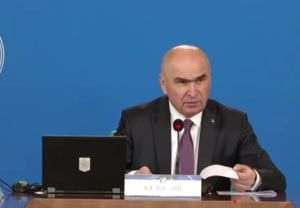The Romanian Intelligence Service is in charge of Romania, as politicians have been discredited, Alexander Adamescu said on December 7th, in a debate on ownership rights protection organized in London by Legatum Institute, a division of investment firm Legatum.
In May, the prosecutors issued an arrest warrant against Alexander Adamescu, son of Dan Adamescu, for offering bribes, and in June, he was arrested in London, prior to a conference on the abuse of European arrest warrants, where he was scheduled to speak. The request for his extradition to Romania is being tried in London, and the lawsuit has been postponed until April.
According to Alexander Adamescu, the result of the parliamentary elections will change very little: "Over the last few years, due to the anti-corruption war, Romanian politicians have been discredited. But the same people targeted by the anti-corruption entities will remain in power. The question that persists is: if politicians are discredited, then who will lead the country?
My answer, this a personal opinion, is: the Romanian intelligence services. There is a power vacuum filled by those who speak about national security and who have power over politicians. This is an opaque issue. See how some people become targets for things they did 10 years ago. That brings to mind the communist times, when the former "Security" (ed. note: political police) had a dossier for everyone and they would use it when needed. That raises questions over the democracy in the country".
Romania is the most corrupt country in Europe, one in 3 people admit that they offer bribes periodically, Graeme Leach, of Macronomics, a consulting firm, said last week, during the debate.
"According to some studies on those who admit that they paid bribes, Great Britain is the least corrupt country in Europe, with only 1 in 100 citizens admitting that they pay bribes regularly", said Graeme Leach, who added: "At the opposite end, in Hungary, the number is 1 in 5, and in Latvia, 1 in 4".
According to him, bribery isn't distributed equally across Europe: "That is important, because of the economic, political and individual consequences of corruption, beyond bribery, especially in the restriction of ownership rights. From an economic point of view, undermining ownership rights means playing with fire.
Without strong ownership rights, the foundations of capitalism are built on sand, because investors are denied the fruits of their investments. The absence of rights of ownership rights is the economic equivalent of a declaration of war.
Countries in which ownership rights enjoy strong protection have a GDP per capita that is twice as high. Likewise countries with a corrupt judicial system are on average very poor".
He said, during the debate, that Romania is one of the few countries where a prime-minister investigated on charges of corruption remained in office: "In 2015, prime-minister Victor Ponta, five ministers and 21 members of parliament have been investigated. Despite a strong anti-corruption impulse, the country has been so corrupted after the years of communism, that even the current anti-corruption campaign has been affected. Communism is dead, but not the communist mentality - that of expropriating ownership rights - which is alive and active".
About Romania, the reputable Heritage Foundation Index of Economic Freedom wrote in 2016 that "Romania has struggled to meet the EU anti-corruption criteria, despite the opposition from the political class. Courts are understaffed and they are subject to chronic corruption and political influence ... the high level of corruption weakens the chances of dynamic long term development", the quoted consultant said.
According to him, the recent economic growth in Romania has been substantial, but that accomplishment would quickly vanish if businesspeople and investors thought that the anti-corruption struggle had more holes than Swiss cheese.
The 2016 "Prosperity Index report" calculated by Legatum Institute notes: "corruption and governance remain a major concern in Romania".
When asked how to create trust in countries such as the ones in Eastern Europe, Tim Evans, economics professor at Middlesex University London and former consultant to the Slovakian prime-minister in 1991, said: "What shouldn't be done is what countries such as Romania have done. You don't turn a communist party into a so-called social democrat party. You don't keep a domestic intelligence service such as the one in Romania, you don't allow it to manage its own commercial organizations, like HexiPharma. What you do is start by reforming the key institutions of the state. You don't allow investigated ministers, such as Victor Ponta, to appoint the leaders in the key institutions of the state. That is a recipe for corruption. If you come from a system that had ties to the former political police, you need to diminish that state owned apparatus, to liberalize the economy and to ensure that you have an absolutely independent judicial system.
You don't create a so-called national anti-crime machine, which is so involved in the domestic intelligence setup and that way influences the media and the judicial system. Romania citizens are just hoping that the current regime, the anti-corruption struggle is good, just to find out, two or three years later that the people involved were corrupt."
In the opinion of Tim Evans, in Romania, there has been no reform, a revolution in the true meaning of the word, rather it is the system has gone through a revolution. According to him, that was one of the problems and that is why Romania is faced with so many cases of arbitrage in the international courts.


























































